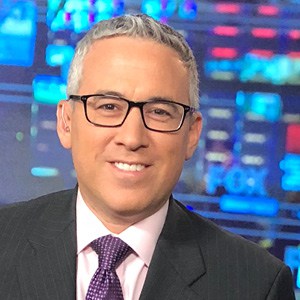Wednesday, February 20, 7:30 pm
Reba and Sam Sandler Family Campus, Free
As part of the Community Relations Council of the United Jewish Federation of Tidewater and community partners’ annual Israel Today series, Jonathan Schanzer, the senior vice president for research at the Foundation for Defense of Democracies, will offer an assessment of the ever-changing challenges on Israel’s borders, through the trends, thoughts, and policies of her Arab neighbors.
The event is free and open to the community with RSVP required to JewishVA.org/IsraelToday.
Last month, the CRC connected with Jonathan Schanzer on the phone and asked the following questions:
Community Relations Council: What do you think is the least discussed, yet most important, global challenge that we currently face?
Jonathan Schanzer: There are probably two answers to that question. One as relates to the Middle East, and one perhaps, more globally.
When it comes to the Middle East, I think one of the least analyzed conflicts, at least in the everyday media, has been the conflict in Syria. That conflict has been a devastating civil war, killing hundreds of thousands and displacing millions. And, it has a direct impact on Iran’s ability to extend its power throughout the region. It has an impact on Russia’s ability to maintain a perch in the Middle East, and it certainly has an impact on Israel’s ongoing fight to defend itself. And now, with the U.S. planned departure from Syria, there are many questions about what this will mean.
The answer to the global question would be the return of the great power conflict. We are now seeing the rise of China, the resurgence of Russia, and this means that the U.S. is going to need to pivot away from its counter-terrorism model to one of competition with these state powers. This is going to require a major shift on the part of the Pentagon, as well as the intelligence community, and I believe that shift is ongoing.
CRC: Around the world, it seems that democracies everywhere are in jeopardy of failing. What gives you hope now?
JS: Well, certainly I think democracy is under siege and we’re seeing it not only in our country, but also in places like England as they discuss the Brexit issue. We’re seeing the rise of right wing nationalist groups in Eastern Europe and beyond. So certainly this is a challenging time for democracies.
What I would say, though, is that the systems that have been put in place seem to be enduring. In other words, our Constitution is still holding strong. I don’t believe that the fundamentals of our country have changed whatsoever. I think the same holds for the UK and perhaps some of the other stronger democracies.
Another big positive issue that I’m watching that has probably less to do with democracy, but more to do with just positive trends, is this phenomenon where the Arab world has been reaching out quietly to Israel, perhaps setting the stage for a more peaceful Middle East. This is something that I think has gone largely overlooked, but certainly seems to be ongoing.
CRC: What is Israel’s biggest current threat?
JS: Without question, Israel’s biggest threat is Iran. And that threat comes in many forms. It comes in the form of Iran’s nuclear program, which never really stopped developing, even during the JCPOA (Joint Comprehensive Plan of Action) 2015 nuclear deal. But on top of that, you have the Iranian support for Shiite militias in places like Iraq and Syria. You have Iranian support for Hezbollah, which is currently pointing roughly 150,000 rockets south at Israel. You have Iran’s support for Hamas, which continues to fire rockets into Israeli civilian territory and dig tunnels with the intent of carrying out commando raids. So, Iran has been building to a conflict with Israel. Israel continues to thwart many of those efforts, but this is an ongoing chess match and it’s unclear when its culmination will be.
CRC: Is there anything Jewish News readers can do to prepare before your visit to Tidewater?
JS: I always tell readers and enthusiasts of the Middle East to keep up with the news and with legislation that’s pending on the Hill and with legislation that’s relevant in your local legislature. In other words, be educated, be informed, and be ready to act when there are opportunities to do so. Right now, we’re in the beginning of a new legislative cycle, so it may take a little bit of time to see where those opportunities arise, but they certainly will come.

